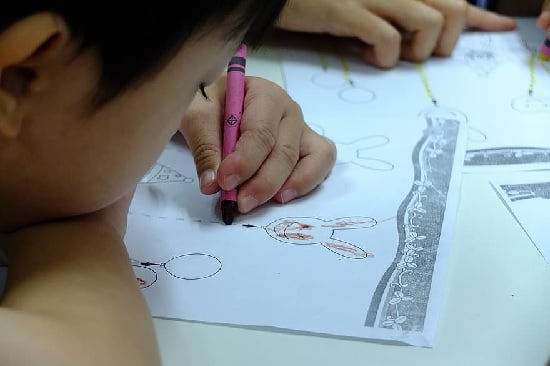
The early years creativity consultancy will close after 18 years, leaving a gap in the sector
Earlyarts UK closes due to Covid-19
After 18 years' work in arts and education, coronavirus was "the final straw" in an ongoing battle for income.
Preschool creativity consultancy Earlyarts UK will close due to Covid-19.
Founding Director Ruth Churchill Dower told ArtsProfessional that the coronavirus "was really the final straw in what had been a long fought battle for suvival and recovery since the huge [arts funding] cuts in 2010 and subsequent recession".
"The loss of our training and consultancy contracts for the forseeable future whilst non-essential adults cannot go into schools, coupled with the inability of the director to be furloughed and still fulfil legal responsibilities, meant we were not able to continue trading," she said.
READ MORE:
- Nuffield venue cited as Covid victim was in trouble before lockdown
- More businesses have closed in the arts than any other sector
"We did try to pay the bills with monopoly money but it seems our suppliers don’t operate on quite the same currency of playfulness."
Churchill Dower said Earlyarts business model made it ineligible for emergency funding, leaving it with little option other than to close.
"The Government's schemes could not cater for every model and so we fell through the net."
Going local
Earlyarts is one of the only companies providing training and consultancy services for embedding creativity in preschool education.
Churchill Dower founded Earlyarts in 2002. She is an expert in neuroscience and creative teaching, a trainer for clients including major museums, universities and UK arts councils and local authorities, and the author of a book, "Creativity and the Arts in Early Years – Supporting Young Children's Development and Wellbeing".
In 2009 she won the Ogunte Women's Social Leadership Awards for her work on Earlyarts.
Churchill Dower said the Earlyarts website, which contains research and resources for eduactors, will continue "at least in the short term".
But in a time of increasingly pressured budgets for arts organisations and funders, Churchill Dower said the kind of work and services Earlyarts provides may no longer happen on a national, multi-art form scale.
"I think the time is very much for local practice development now. The national or international models of the past always ran the risk of becoming too generic on the basis of having to find the greatest efficiencies for financial security.
"Museums, libraries, galleries and theatres have been the mainstay of early years cultural development for many years … my hope is that many of them can extend their offer to include training."
Changing models
Earlyarts' income has declined over several years. Churchill Dower said the organisation encountered a "tripple whammy" in 2010 when Pathfinders arts funding ran dry, many children's centres were closed, and the Government pursued a review of the early years curriculum that removed incentives to invest in creative training.
Its business model then changed to focus on creative teaching materials but Earlyarts found itself competing on price with larger publishing houses.
Staff time was largely devoted to sales and marketing and, with Earlyarts vision at risk, Churchill Dower decided to scale down the company to focus on consulting.
She said its 10,000-subscriber email bulletins have "always been hugely popular".
"But virtual and paper-based toolkits can never replace relationship based training."
Parting words
In a final bulletin sent on Wednesday, Churchill Dower said the "extraordinarily diverse and creative" artistic responses to the lockdown have brought joy, connection and "a semblance of normality".
"What is abundantly clear to me is that this can only bring new and important changes to the ways we think about our cultures, relationships and educational frameworks in the future," she wrote.
"The creative opportunities that could emerge on these new horizons cannot be grasped unless time and space is made available for them."
Churchill Dower said that while cultural organisations cannot survive on imagination alone, artists and educators were among the most resilient people she had worked with.
"It seems to me that the arts cannot be wiped out by the lack of funding or infrastructure for the simple reason that our imaginations are limitless."
She will continue working on her PhD at Manchester Metropolitan University, researching attunement through immersive dance with children who don’t speak.
Join the Discussion
You must be logged in to post a comment.